Here are some collected Twitter ramblings from March 2022, with some additional color commentary sprinkled in.
This month’s photo of the month is from one of my first hikes following the winter thaw at Naugatuck State Forest. This time of year is such an underrated time to hit the trails.

This kicked off a really good discussion about how we interpret “selectivity” of compounds against biological targets. Nowhere is this more apparent than in interpretation of kinase selectivity. Biochemical assays run at [ATP] = Km are subject to significant biases when comparing across kinases to determine selectivity, simply because the ATP Km for kinases can vary wildly. The Cheng-Prusoff allows one to predict how those IC50s or Kds will translate in an environment of cellular [ATP], which is ~1 mM. The case of JAK1 and JAK2 is particularly vexing, because despite being so closely related, their ATP Km differs by 10x. Always be sure you know what your assay is telling you! And for my money, I’ll bet on selectivity numbers measured in a cellular context over any isolated biochemical system.


LinkedIn, in addition to being practically sterile compared to the vibrant scientific community on Twitter, is full of cold calls. It’s gotten to the point that if you have sales/BD in your description, or don’t offer at least a minimal attempt to make an introduction, I’m refusing such connections. It’s almost like this is LinkedIn’s entire business model. Oh, wait…

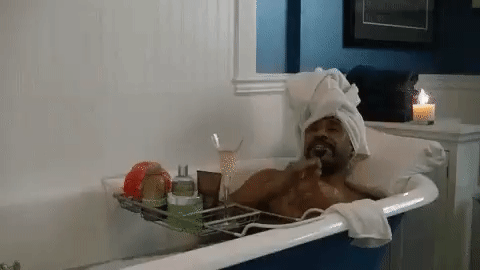
If your job is burning you out, it’s time to take a step back. This also requires enough self-awareness to realize the burnout though. Sometimes you’re so busy burning that you fail to objectively assess your own well-being. I’m a big fan of taking a little time once a week, and maybe a little longer once a month to think and plan. Do it with your morning coffee on Sundays, or whatever time works for you that’s quiet. What am I doing, where am I going, am I happy right now? A little mindfulness goes a long way.


It occurs to me as I’m writing this that I haven’t done an AMA in a while, so maybe I’ll do one again soon. I’ve done a few of these now, and the questions and the dialogue have been really great. I particularly enjoyed one I did later in March where I focused on early career folks and academia-to-industry transition. I’m old enough now to have some distance from “early career”, see all the mistakes I made, and offer a little wisdom to others on how to avoid the same mistakes.


It’s still going strong two months later as I’m writing this, although the plants have gotten considerably bigger. We aren’t hurting for fresh herbs, although we’ll start growing more herbs outside now during the warmer months. So it might be time for a re-planting of the hydroponics soon.
One of my pandemic hobbies was to become a better bartender. I started with what many consider to be the Bible: Sasha Petraske’s Regarding Cocktails. For building your foundations, Petraske’s book is outstanding. His relentless focus on quality and vast catalog of uncomplicated but on point recipes has been far more valuable to me than any big book full of recipes with a plethora of fancy ingredients.
Indeed, many bartenders will tell you the true “secret handshake” is a daiquiri. It’s an uncomplicated drink with just three ingredients: white rum, lime juice, and simple syrup. When you hit that balance of sweet, sour, and booze just right, it’s magic — far more than the sum of its parts. If a bartender can make you a good daiquiri, they know their shit. If they can’t, well, with such a simple recipe, there’s no torrent of fancy stuff to hide bad technique behind.

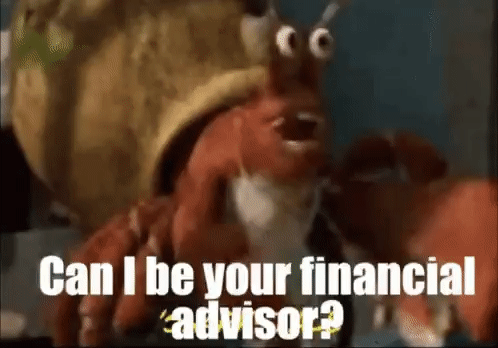
I’ll die on this hill, even as I write up these notes post-big market downturn. Vanguard was founded on the low/no load index fund principle, and it’s a good one.


Mentioned this above in the context of burnout. You can be grinding yourself to dust, and then one day, some management type swings the axe on your whole department. Suddenly bereft of anything to do, that empty time rapidly fills in with self-reflection. Sometimes you realize you’ve been unhappy for a long time. Sometimes people spend their whole careers that way. Life’s short. Yes, you need to make a living — but try to be happy doing it. Happiness isn’t worth postponing to a tomorrow that might never come.

This turned into Careers Month for me on Twitter, and I had a lot of posts along these lines. I could — and probably will — write a lot more about the academia/industry divide, and also the things we can do to build bridges. That begins with a foundation of mutual respect, though. I see too much of academic Twitter looking down their noses at those of us in industry, and that needs to stop. It’s ill-informed at best, elitist at worst.


This is my favorite perk of my current job. My sabbatical time is booked for this summer — but I won’t spoil the surprise about what I’m doing with my 6 weeks just yet. Stay tuned on Twitter!


So many questions about this sort of thing, and so much confusion. This is why I want to build bridges back to academia — because it’s clear the word about what industry is really like isn’t percolating to all corners of academia. I’ve offered repeatedly to sit on any careers panel at any academic institution that will have me. Offer still stands.


I look forward to more discussions on AI/ML. I’m particularly interested to hear about solutions to the “garbage in, garbage out” problem. Biological and clinical data is messy.


A drum I will never tire of banging. Not having the resources to do the work the right way with all of the supporting studies, which Bob and I and others have delineated — repeatedly — is not an excuse for turning in and publishing a poor product, from which shoddy conclusions are drawn. Science is not advanced that way, and uncounted others are misled to pursue similar lines of work by following those bad conclusions.

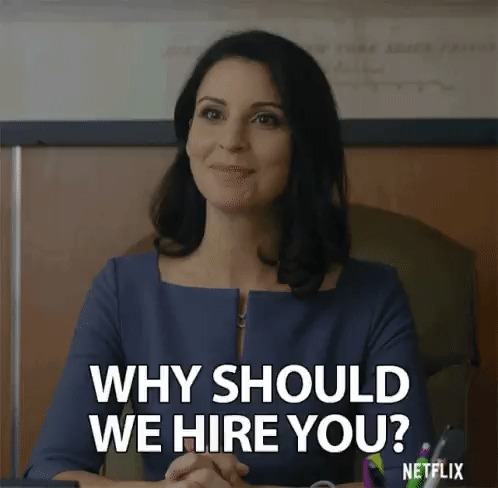
So important to be specific. Any answer that a candidate starts with “I always…”, “I never…”, or “Generally, I…” and I’m tuned out. My brain has already jumped to the next question I’m going to ask, which is, “Can you provide me with a specific example of your general behavior?” Also (and I drill this into my kids endlessly, and sometimes they hate me for it): answer the question you were asked, not the question you’d like to answer instead.

For the record, there’s no such region in France. But this did some numbers anyway.


And again. Industry isn’t a lesser/failing/insert negative term here choice. It’s just a choice. We have different goals, motivations, and value systems than academia’s. But different doesn’t mean inferior, just different. If you think that academia’s value system is the peak, ask yourself: 1) who told me that and made me believe it?; 2) why are there so many people in academia who are miserably unhappy and looking to escape if it’s so great? No, academia is a value system. It’s terrific for some people, and it’s needed as part of a functioning society. But peak? No way.

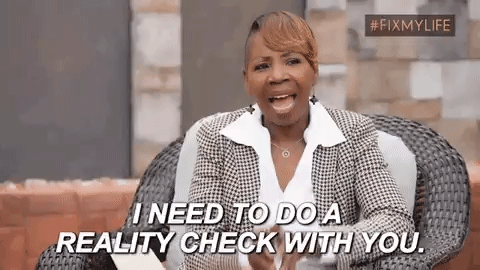
And some more. I sometimes wish people who have made the decision to pursue a different career would use a different language. Say you’re starting a new career, going in a different direction, joining industry, whatever. But this language of “leaving academia” sounds so defeated to my ears. Folks who have made this difficult-but-brave choice (because changing careers is always hard) shouldn’t have to use this language of defeat. Like they’ve somehow failed, and so they have to “leave” academia. Give yourself a little more credit. You’re not leaving academia, you’re joining industry, or whatever other career path is right for you. Head high, because you’re awesome.

This was the first one of these I did, and I’ve done a few more since. I won’t do one every Friday, but I’ll sprinkle some in when the mood strikes.





Hiking pictures are back on my timeline. Come for the med chem and pharmacology, stay for the hiking pictures.


We’re still learning as a society how to navigate a hybrid world. Nowhere is this more on display than at conferences. It’s really hard to host hybrid events and have them feel equitable to all, and it’s the remote folks that wind up getting the short end. There’s lots of reasons (starting with the fact that we’re still in the midst of a pandemic despite most governments putting their heads in the sand) that people need or want to be remote. The world has changed. The way people want to work and engage with others has changed. Our infrastructure needs to catch up to that reality.

That’s about as close as I’m gonna get to Deep Thoughts. Leave something good behind you.

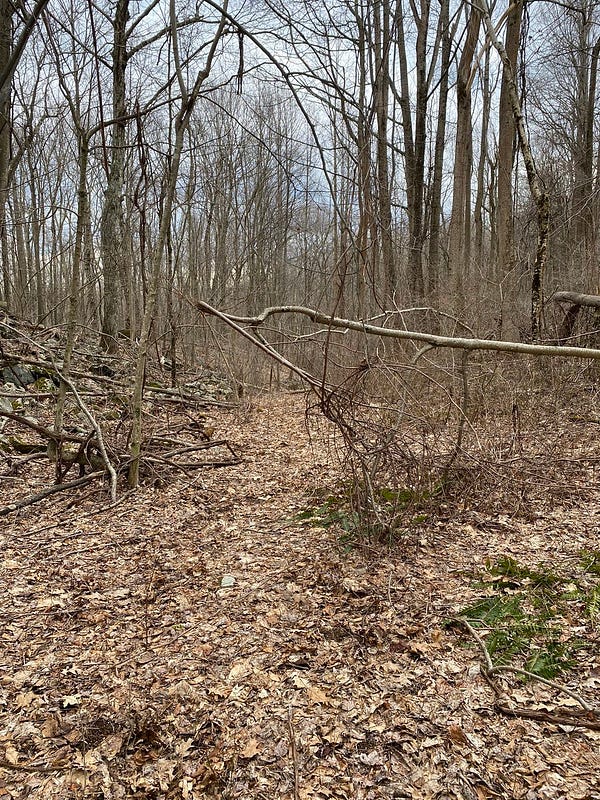



And on that note of leaving something good behind you, find an organization you care about and volunteer some time to help it. I hike a lot, and it occurred to me that all these wonderful trails we have in Connecticut don’t maintain themselves. I’ve given plenty of hours to the local land trust to help them maintain their trails. Not only do I still get to spend time outdoors on the trails, but I get to make them better for others, and I get to spend time with my son. The older I get, the more restorative to my soul this kind of activity becomes.

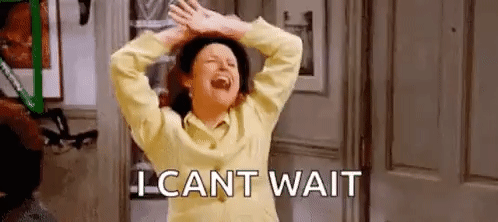
It was terrific to go to an in-person meeting this year. AACR even did a respectable job of a hybrid meeting and working to include others. I really appreciated that all questions to presenters had to be submitted online, even for in-person attendees. This created a little more parity for folks who were attending remotely.

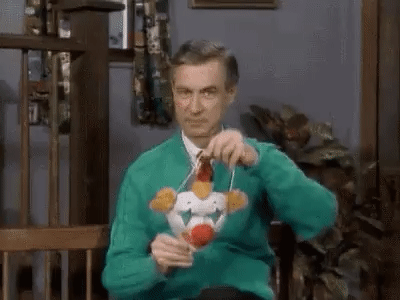

See above about doing the work the right way. There are no shortcuts in drug discovery. The clinic is brutally unforgiving of your ignorance.


And this dovetails right into the “do it right or don’t do it” theme. Why do we insist on people doing these kinds of pointless Minimum Biological Experiments to get funding? Just fund this work for its own sake.


I’m slowly learning that any mention of Shulgin on Twitter is likely to bring some devotees of hallucinogenic substances out of the woodwork, sometimes from unexpected corners. Shulgin was a terrific medicinal chemist, but the true bridge to broader acceptance of his work and its therapeutic potential is properly controlled clinical trials. We can learn a lot from his experiments and his guidance for how to approach human testing. But he wasn’t a clinician.
I think the look on my face probably says it all.







